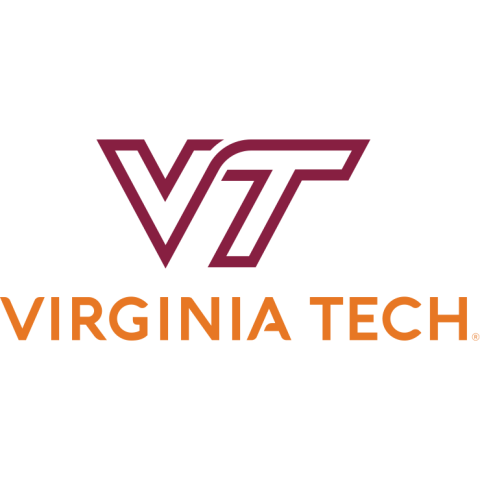
Effective levers to foster women – specifically women of colour – into leadership roles
You may also like
Higher education is often heralded as the great equaliser when it comes to opportunity. However, gender and race disparities persist in leadership roles within academic institutions, with women of colour significantly under-represented. While strides have been made in recent years to address these inequities, we still have a long way to go.
I’ve had more than 30 years of administrative, academic, legal, fundraising, advancement and community engagement experience and, based on what I’ve learned and seen, I suggest several effective levers we can use to create a more inclusive and diverse academic landscape.
Transparent recruitment and promotion
Academic institutions should establish clear and equitable policies that promote fair evaluation and advancement opportunities. This includes openly addressing biases in hiring processes and securing diverse candidate pipelines. At Virginia Tech, our strategic plan Advancing Beyond Boundaries is our North Star. Transparency not only holds institutions accountable, but also serves as a powerful motivator for continuous improvement in fostering diversity.
Support for work-life balance
Balancing career aspirations with personal and family life is a challenge that typically affects women far more than men. Implementing policies that support work-life balance is critical for attracting and retaining women of colour to leadership positions. Essentially, academic institutions need to find a way to factor career breaks, changes and parenthood into professional career paths. This means offering a combination of flexible work schedules, generous faculty affairs parental/family leave policies, sabbaticals and/or childcare assistance or resources.
- Women’s leadership is vital in the evolving landscape of higher education
- Improve women’s accessibility to leadership by following these steps
- Difference matters – and embracing it can change the world for all women
By addressing these challenges, academic institutions can create an environment that allows women to pursue leadership roles without compromising their personal lives.
Sometimes balancing family and work obligations means that career journeys are not always about ascension. Women are often the “sandwich”, caring for children and parents at the same time. Universities need individuals in supervisory leadership positions who have empathy and are willing to support women both personally and professionally at all stages.
My own goal to balance being a mother, daughter and wife with my calling to serve has affected my journey in academia. At one point in my career, I took a significant salary cut, dropping several rungs on the career ladder. The move, however, allowed me to care for my mother in my home until she died.
Continuing education and development
Giving women access to professional development and continuing education opportunities is crucial for their advancement in HE leadership. Institutions should offer training, workshops and leadership courses tailored to the challenges and skills required for leadership roles.
They should also support women as they fortify their chosen educational backgrounds; this can be accomplished through tuition reimbursement, fellowships and paid time off. I am blessed to be a fellow with the American Council on Education this year. These experiences are transformational for understanding the challenges and opportunities around leadership.
Mentorship and peer support
Finding support and mentorship can make an immense difference, especially for women and populations who experience marginalisation. To help women of colour support, connect and feel empowered, I founded the Faculty Women of Color in the Academy (FWCA) national conference. The FWCA is a unique educational and professional opportunity for Indigenous women and women of colour in HE to network, engage and learn with colleagues from around the country. It helps women heal and bond through sisterhood. The conference and its quarterly healing hours have been meeting for 12 years, affecting 1,000 women of colour annually. The conference is a place and space for women to think about leadership.
Allyship and advocacy
Allyship from both men and women is essential for creating an environment that supports women in leadership roles. The Virginia Tech community is undergirded by phenomenal Principles of Community, which encourage respect, civility, appreciation of differences and diversity. It is a community that, for several years, has been invested in InclusiveVT, the institutional and individual commitment to Ut Prosim (That I May Serve) in the spirit of community, diversity and excellence. InclusiveVT, as a framework, enables faculty, staff and students to advance the work of allyship and advocacy. Several of our programmes, through the Office for Inclusion and Diversity, offer education opportunities to enhance awareness of tools and strategies for advancing diversity, equity and inclusion.
Gender equality is also an imperative from the United Nations in Sustainable Development Goal (SDG) 5, which notes that “gender equality is not only a fundamental human right, but also a necessary foundation for a peaceful, prosperous and sustainable world”. The prevailing question is: if women have equal access to higher education, why are their career paths unequal in terms of achieving leadership academic positions when they graduate?
Pulling multiple levers is essential to trying to level the playing field to ensure that women have the opportunity to ascend to the highest levels of universities. Achieving a critical mass of female leaders in higher education institutions helps to shift gender dynamics and power relations at decision-making levels. It changes the nature of the conversation; it affects outcomes; and it influences the future of society. It is not just about changing who is at the table. It is about changing what is discussed at the table; what happens when people leave the table; and what happens when they walk out of the room.
Menah Pratt is vice-president for strategic affairs and diversity and professor of education at Virginia Tech, as well as chair-elect for the Council on Diversity, Equity, and Inclusion of the Association of Public and Land-Grant Universities. Her latest book, Blackwildgirl: A Writer’s Journey to Take Back Her Superpower, will be published by She Writes Press in April 2024.
If you would like advice and insight from academics and university staff delivered direct to your inbox each week, sign up for the Campus newsletter.
Additional Links
See our International Women’s Day spotlight for more advice and resources from women leaders in higher education.
For more resources on EDI work, see our spotlight on how universities can boost staff diversity.




